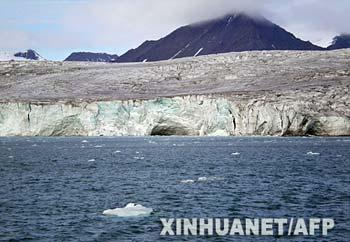Source: Xinhua
02-01-2009 14:46
LONDON, Jan. 26 (Xinhua) -- Scientists will seek ways to reduce global warming with help from two new satellites that will measure CO2 in the Earth's atmosphere.
Researchers at the University of Edinburgh are to study data from the instruments, which are being launched by NASA (the National Aeronautics and Space Administration) and the Japanese Aerospace Exploration Agency, according to a press release on Monday from the University.
 |
| Global warming increases the rate of "ocean acidification" and is damaging some of the most important living organisms in the sea's food web, U.S. scientists have warned.(Xinhua/ AFP File Photo) |
The satellites, known as The Orbiting Carbon Observatory and the Greenhouse gases Observing SATellite, will for the first time give region-by-region accounts of Earth's carbon emissions and also highlight areas of the planet which are absorbing the most CO2.
They will provide fresh information on surface emissions and absorption of CO2 in remote regions such as the Amazon basin, Siberian taiga, Alaskan tundra and African forests.
Currently, scientists are able to look at CO2 emissions from very small areas, such as cities, or very large areas, such as oceans. This latest technique will make regional data available for the first time, potentially helping to quantify the emissions outputs of individual countries.
The satellite data will allow scientists to pinpoint more accurately the worst-polluting regions on Earth. More importantly, they will identify more effectively those environmental conditions that encourage absorption of CO2, such as those found in forests and oceans. Recreating these conditions naturally or artificially elsewhere on Earth could help to curb emissions to Earth's atmosphere.
In the longer term, data from the satellites are hoped to contribute to the development of a better accounting system for carbon trading, the scheme in which countries are assigned an individual limit on how much CO2 they can emit, and may sell surplus capacity up to this limit.
Paul Palmer, of the University of Edinburgh's School of GeoSciences, who is leading the project to interpret the satellite data, said: "This development is unprecedented -- we expect to learn where and how much CO2 is released to the atmosphere and how much is absorbed by forests and oceans, and how it moves around in the atmosphere. All of this will help us look for ways of combating climate change on Earth."
Editor:Yang Jie
